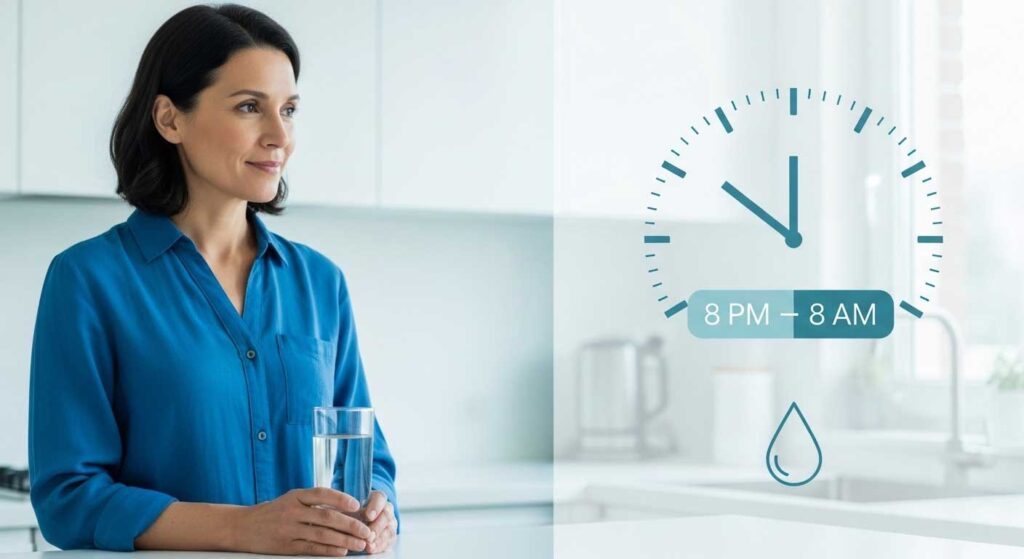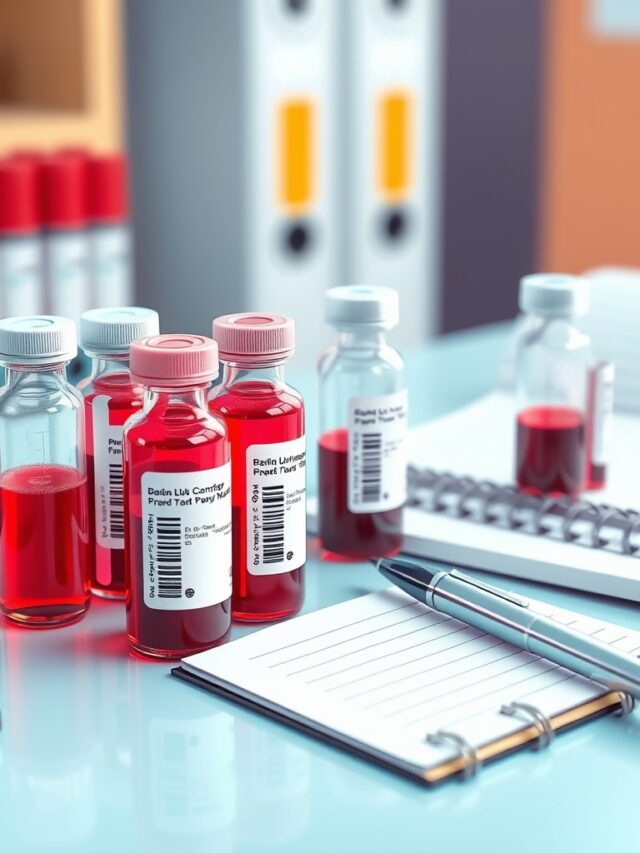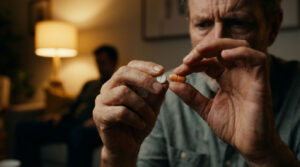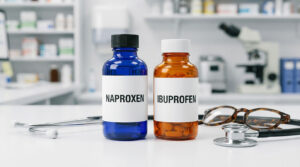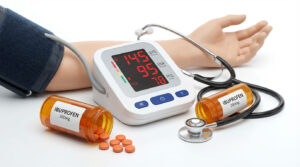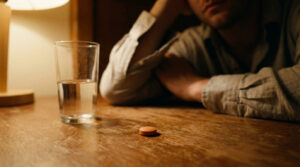Your doctor has ordered a blood test, and the first instruction you receive is a simple but crucial one: “You need to fast.” This directive often raises more questions than it answers. Why is this simple rule so important? What really happens if you have that morning cup of coffee or a piece of toast? The reality is that this period of abstaining from food and drink is one of the most critical steps you can take to ensure your lab results are accurate.
Eating and drinking can temporarily change the chemical makeup of your blood. These changes, if not accounted for, can lead to inaccurate results, a potential misdiagnosis, and unnecessary anxiety and follow-up procedures. Understanding the reasons behind this medical guideline empowers you to take control of your health journey.
This comprehensive guide will answer every question you have about fasting before a blood test. We will explore the science behind it, detail exactly which tests require this preparation, provide a step-by-step guide on how to do it correctly, and explain what to do if you make a mistake.
The Science Behind Fasting: What’s Happening Inside Your Body?
To understand why we fast for blood work, it’s essential to grasp the concept of a “baseline” state. Think of your baseline as your body’s default setting—its normal, resting condition, free from the immediate influence of a recent meal. A fasting before blood test allows your doctor to see this baseline clearly, providing the most accurate snapshot of your health. When you eat or drink, your body immediately gets to work digesting and absorbing nutrients, a process that dramatically changes what’s circulating in your bloodstream.

How Carbohydrates Become Blood Sugar
When you consume carbohydrates—from bread and pasta to fruits and sugary drinks—your digestive system breaks them down into glucose, a simple sugar that serves as your body’s primary source of energy. This glucose is absorbed directly into your bloodstream, causing your blood sugar levels to rise.
A fasting for glucose test is designed to measure your body’s ability to manage blood sugar without the influence of a recent meal. If your levels are high even after an 8- to 12-hour fast, it can be a sign of pre-diabetes or diabetes. A single can of soda, for instance, can cause a healthy person’s blood sugar to spike by 30-60 mg/dL or more within an hour, which would completely invalidate the results of a fasting test.
How Fats Become Triglycerides
Similarly, when you eat foods containing fat, your body breaks them down and converts them into a type of fat called triglycerides. These triglycerides are then transported through your bloodstream to be used for energy or stored for later.
A fasting for cholesterol test, also known as a lipid panel, is extremely sensitive to recent fat intake. Scientific data shows that triglyceride levels can be 20-30% higher after a fatty meal. Since high triglycerides are a risk factor for heart disease, and their levels are used in the calculation of LDL (“bad”) cholesterol, a non-fasting test can provide a falsely alarming picture of your cardiovascular health. This is a primary reason why fast for blood work is so critical for lipid panels.

The Impact on Proteins, Vitamins, and Minerals
Other nutrients are also affected by food. For example, if you are having your iron levels checked, eating an iron-rich meal like red meat or fortified cereal right before your test can temporarily and artificially increase your iron levels. This could mask an underlying iron deficiency or anemia. Certain vitamins and enzymes measured in metabolic panels can also fluctuate after eating. Fasting ensures that the levels measured are a true reflection of your body’s long-term status.
The Definitive Guide: Which Blood Tests Require Fasting?
One of the most common points of confusion for patients is knowing which blood tests that require fasting and which do not. The need to fast is entirely dependent on what is being measured. While your doctor and the lab will always provide specific instructions, this guide offers a clear breakdown of the most common tests.
Below is a detailed table outlining the fasting requirements for various blood tests. This information is crucial for proper preparation and accurate results.
| Test Name | Fasting Required? | Typical Fasting Duration | What It Measures | Impact of Not Fasting (Real Data Examples) |
| Fasting Blood Glucose / Glucose Tolerance Test | Yes, Absolutely | 8-12 hours | Blood sugar levels to screen for diabetes or pre-diabetes. | Results will be falsely elevated, potentially leading to a misdiagnosis of hyperglycemia. A non-fasting reading above 200 mg/dL is often indicative of diabetes, but a meal can easily push a healthy person into this range temporarily. |
| Lipid Panel (Cholesterol & Triglycerides) | Often, Yes | 9-12 hours | Total Cholesterol, LDL (“bad”), HDL (“good”), and Triglycerides. | Triglycerides are highly sensitive and can be 20-30% higher after a meal. This can skew the calculation for LDL cholesterol, leading to an inaccurate assessment of heart disease risk. This is a key reason why fast for blood work is standard for this test. |
| Basic or Comprehensive Metabolic Panel (BMP/CMP) | Often, Yes | 10-12 hours | Glucose, calcium, electrolytes, kidney function (BUN, creatinine), and liver enzymes. | The glucose level will be inaccurate. Other markers are less affected, but fasting is the standard to ensure a clean baseline for glucose and other metabolic indicators. |
| Iron Levels / Ferritin Test | Yes | 12 hours (often overnight) | The amount of iron in your blood, to diagnose anemia or hemochromatosis. | Eating iron-rich foods (like red meat or fortified cereals) before the test can temporarily and artificially increase your iron levels, masking a potential deficiency. |
| Vitamin B12 Test | Sometimes | 6-8 hours | Levels of Vitamin B12 in the blood. | Some labs recommend fasting as recent food intake can slightly alter levels. Always follow your doctor’s specific instructions for this test. |
| Complete Blood Count (CBC) | No | Not Applicable | Red blood cells, white blood cells, platelets, hemoglobin, and hematocrit. | Food and drink do not significantly impact these cell counts. This is a common non-fasting blood test. |
| Thyroid Panel (TSH, T3, T4) | No | Not Applicable | Thyroid hormone levels to assess thyroid function. | Fasting is generally not required for standard thyroid function tests. |
| HbA1c Test | No | Not Applicable | Average blood sugar levels over the past 2-3 months. | This test is not affected by recent meals, making it a valuable non-fasting blood test for diabetes management. |
| Kidney Function Panel (BUN, Creatinine) | No (if ordered alone) | Not Applicable | Measures waste products in the blood to assess kidney health. | These markers are not directly and immediately impacted by food, but are often bundled in a CMP, which does require fasting for its glucose component. |
This table clearly illustrates why a fasting before blood test protocol is essential for specific measurements. For tests like a fasting for glucose test, it’s non-negotiable. For others, it’s a non-issue. Always confirm the requirements for your specific order.

Your Fasting Playbook: A Step-by-Step Preparation Guide
Knowing you need to fast is one thing; doing it correctly is another. Following a clear plan can make the process stress-free and ensure you arrive at your appointment perfectly prepared. Here is everything you need to know about how to prepare for a fasting blood test.

How Long to Fast for Blood Work
The standard duration for most blood tests that require fasting is between 8 and 12 hours.
- 8-Hour Fast: This is often the minimum requirement for tests like a fasting blood glucose test.
- 12-Hour Fast: This is typically required for a full lipid panel to ensure triglycerides have returned to their baseline levels.
It’s important to note that “over-fasting” (going more than 16 hours without food) can also be detrimental. Prolonged fasting can cause dehydration and affect certain electrolyte and enzyme levels, potentially skewing your results in the other direction. Always aim for the window specified by your healthcare provider.

The All-Important Water Rule: Can You Drink Water Before a Blood Test?
This is the most frequent question patients ask, and the answer is a definitive yes! You can and absolutely should drink plain water during your fasting period.
Why Water is Okay (and Encouraged)
- No Calories or Sugar: Plain water contains no fats, proteins, sugars, or calories that could interfere with your results.
- Prevents Dehydration: Fasting can lead to dehydration, which can make you feel dizzy or faint. Staying hydrated helps you feel better.
- Easier Blood Draw: Good hydration makes your veins plumper and easier for the phlebotomist to access, leading to a quicker and more comfortable blood draw.
Be sure to stick to plain, unflavored water. Avoid adding lemon, flavor enhancers, or anything else.

What You Must Avoid During Your Fast
To ensure a true fast, you must avoid all sources of calories and substances that can stimulate your metabolism.
The “Do Not Consume” List:
- Coffee and Tea: This is a tough one for many, but you must avoid all coffee and tea. Even when black and unsweetened, they contain caffeine and other compounds that can stimulate your digestive system and potentially impact glucose and triglyceride levels. The answer to “Can I drink coffee before a blood test?” is always no.
- Juice, Soda, and Other Beverages: All juices, sodas (both regular and diet), sports drinks, and flavored waters contain sugars, artificial sweeteners, or acids that can interfere with your test results.
- Chewing Gum and Mints: A common mistake is chewing gum before a blood test. Even sugar-free gum can trigger the release of digestive enzymes and hormones, tricking your body into thinking it’s about to receive food. This can affect your baseline levels.

- Smoking and Vaping: Nicotine is a stimulant that can affect various body functions and lab results. It’s best to refrain from all tobacco and nicotine products during your fasting window.
- Strenuous Exercise: Vigorous physical activity can temporarily affect hydration levels, electrolytes, and certain enzyme markers. It’s best to avoid a heavy workout right before your blood draw.
Navigating Medications and Supplements
This is a critical area where you must follow your doctor’s advice precisely.
- Prescription Medications: As a general rule, never stop taking your prescribed medications unless you are explicitly told to do so by the doctor who ordered the test. You can typically take them with a small amount of plain water.
- Vitamins and Supplements: Many over-the-counter supplements can interfere with lab tests. Biotin (Vitamin B7), in particular, is notorious for causing falsely high or low results on a wide range of tests, including thyroid and hormone panels. Always inform your doctor and the lab staff of all vitamins, minerals, and herbal supplements you are taking. They will provide guidance on whether you need to stop them temporarily before your test.

Common Mistakes and “What-If” Scenarios
Even with the best intentions, mistakes can happen. Knowing what to do in these situations is key to avoiding wasted time and inaccurate results.
“Oops, I Ate!” – What to Do When Fasting Goes Wrong
Let’s address the most common panic-inducing scenario: you accidentally ate before your fasting blood test. Perhaps you forgot and had a bite of a muffin or put cream in your coffee out of habit.
The Solution: Honesty and Communication
The most important thing to do is to be honest.
- Call Ahead: As soon as you realize your mistake, call your doctor’s office or the lab where your appointment is scheduled.
- Explain What Happened: Tell them exactly what you ate or drank and at what time.
- Follow Their Instructions: In nearly all cases, they will instruct you to reschedule your appointment. Proceeding with the test would yield misleading data, wasting everyone’s time and your money.
What Happens If You Eat Before a Blood Test?
Attempting to go through with the test after breaking your fast has significant consequences. The question of “what happens if you eat before a blood test” isn’t about getting in trouble; it’s about the integrity of your medical data.
Imagine this real-world instance: A patient has a greasy breakfast before a lipid panel. Their triglyceride levels appear dangerously high on the results, and their calculated LDL cholesterol is also elevated. Based on this single, inaccurate test, a doctor might be inclined to prescribe a powerful statin medication for high cholesterol. This patient could end up on a completely unnecessary medication with potential side effects, all because of a piece of bacon and some eggs. This is why fasting for blood work is not just a suggestion—it’s a critical component of an accurate diagnosis.

Simplify Your Health Journey with HealthCareOnTime.com
We know that coordinating lab appointments, understanding complex preparation instructions, and keeping track of your results can be overwhelming. At HealthCareOnTime.com, our mission is to simplify this entire process, putting you in confident control of your health.
Take Control of Your Health Testing with Confidence
We remove the guesswork and logistical headaches from diagnostic testing. From clear instructions to convenient scheduling, we are your partner in proactive health management.

The Annual Wellness Panel
Our comprehensive package includes the essential tests that often require fasting, such as a Lipid Panel and a Comprehensive Metabolic Panel. When you book with us, we provide clear, easy-to-understand fasting before blood test instructions tailored to your specific tests. We also help you schedule an early morning appointment for your convenience, minimizing your fasting window during waking hours.
At-Home Cholesterol & Glucose Kits
For routine monitoring from the comfort of your home, consider our at-home blood test fasting kits. These kits come with everything you need for a simple finger-prick sample, along with clear guidelines on when and how long to fast for blood work to ensure you get the most accurate at-home reading possible.
Appointment Concierge Service
Forget waiting on hold or navigating confusing lab websites. Our concierge service finds the nearest Quest Diagnostics or Labcorp facility and books the best time for a fasting blood test that fits your schedule, ensuring a seamless and stress-free experience.
Lab-Specific Rules and Scheduling Logistics
Patients often wonder if fasting rules differ between major laboratory providers. This section clarifies what to expect and how to schedule your appointment for the easiest possible fast.
Quest Diagnostics vs. Labcorp: Is There a Difference?
When it comes to the core medical requirements for common tests, the rules are standardized. The fasting window for a lipid panel (9-12 hours) or a glucose test (8 hours) is based on medical science and will be the same whether you visit Quest Diagnostics or Labcorp.
Where you might notice minor differences is in their patient communication materials, online portals, or specific protocols for rare or highly specialized tests. However, the fundamental instructions for the most common blood tests that require fasting do not change.
The Golden Rule of Lab Testing
No matter where you go, the golden rule is to always follow the instructions provided by YOUR doctor and the specific lab performing YOUR test. If you receive instructions from the lab that seem to contradict your doctor’s, make a quick call to your doctor’s office to clarify.
Scheduling for Success: Tips for an Easy Fast
You can make your fasting before blood test experience much more manageable with a bit of planning.
- Book an Early Morning Appointment: This is the single best tip. Schedule your blood draw for the earliest possible time in the morning. This way, most of your fasting period occurs while you are asleep.
- Eat a Healthy Dinner: Have a normal, balanced dinner the night before. Avoid overly heavy, greasy, or sugary foods, as they can take longer to digest.

- Prepare Your Post-Test Snack: Have a healthy snack and a bottle of water ready to go with you to your appointment so you can eat and rehydrate immediately after the draw is complete.
After the Test: Breaking Your Fast and Understanding Next Steps
The moment the phlebotomist places the bandage on your arm, your fast is officially over. Now, the focus shifts to rehydrating, replenishing your energy, and waiting for your results.
What to Eat and Drink Post-Test
It can be tempting to reach for a sugary donut or a greasy breakfast after fasting, but a more balanced choice is better for your body. The ideal what to eat after fasting blood test is something that will gently restore your blood sugar and energy levels.

Good Post-Fast Options Include:
- Protein and Complex Carbs: A hard-boiled egg, Greek yogurt with berries, a small bowl of oatmeal, or a handful of almonds are all excellent choices.
- Healthy Fluids: Continue drinking water. A low-sugar electrolyte drink can also be beneficial if you feel particularly drained.
- Iron-Rich Foods: While the amount of blood taken is very small (typically less than a tablespoon), if you are prone to feeling faint, having a snack with some iron, like a small protein bar or some trail mix with seeds, can be helpful.
Getting Your Results
Your blood sample will be processed by the lab, and the results will be sent directly to the healthcare provider who ordered the tests, typically within a few days. Your doctor’s office will then contact you to discuss the results and any necessary next steps.
Conclusion: A Small Step for Accurate Health Insights
Fasting for a blood test may seem like a minor inconvenience, but it is one of the most important steps in your healthcare journey. It is a small act of preparation that ensures you and your doctor receive the clearest, most accurate information about your health. By providing a clean baseline, a proper fast eliminates ambiguity, prevents misdiagnosis, and empowers your physician to make the best possible recommendations for your well-being.
Remember that fasting is not a hassle; it’s a vital part of the diagnostic process. By understanding the reasons behind it and following the guidelines carefully, you are playing an active and crucial role in managing your health. A successful fasting before blood test is the first step toward accurate insights and a healthier future.
Frequently Asked Questions (FAQ)
Why do I need to fast before a blood test?
You need to fast to ensure that nutrients from food and drink do not temporarily alter the levels of substances being measured in your blood, such as glucose and fats. This allows your doctor to see a true “baseline” of your health, leading to the most accurate results.
How long should I fast for a blood test?
The standard fasting period is 8 to 12 hours. The exact duration depends on the specific test being performed. Always follow the instructions provided by your doctor or the laboratory.
Can I drink coffee or tea while fasting?
No. Even black, unsweetened coffee and tea contain caffeine and other compounds that can stimulate your metabolism and potentially interfere with your blood test results. You should only drink plain water during your fast.
What happens if I accidentally eat before my fasting blood test?
You must inform the lab or your doctor’s office immediately. Honesty is crucial because proceeding with the test will produce inaccurate results. Your appointment will need to be rescheduled.
Which common blood tests don’t require fasting?
Many common tests, often called non-fasting blood tests, do not require this preparation. These include a Complete Blood Count (CBC), a standard thyroid panel (TSH), and an HbA1c test for long-term glucose monitoring.
Can I take my medications while fasting?
Yes, in most cases, you should continue to take your regularly prescribed medications with a small amount of water. However, it is essential to confirm this with your doctor, as some medications or supplements may need to be temporarily paused.
Is it safe to fast for 12 hours before a blood test?
Yes, for most healthy adults, fasting for 12 hours is completely safe. If you have a specific health condition, such as diabetes, or are prone to low blood sugar (hypoglycemia), you should discuss the safest way to fast with your doctor.
Can I chew gum or suck on a mint?
No. Chewing gum or sucking on a mint, even if they are sugar-free, can stimulate your digestive system and cause the release of hormones that can affect your blood work’s baseline results.
What is the best thing to eat after my fasting blood test is over?
Choose a balanced and healthy snack or meal to gently restore your energy. Good options include oatmeal, eggs, Greek yogurt with fruit, a protein bar, or a handful of nuts.
Do at-home blood tests require fasting?
It entirely depends on the test. An at-home blood test for cholesterol and glucose will require fasting, just like a test done at a lab. In contrast, a test for food sensitivities or hormone levels may not. Always read and precisely follow the instructions included with your at-home test kit.

